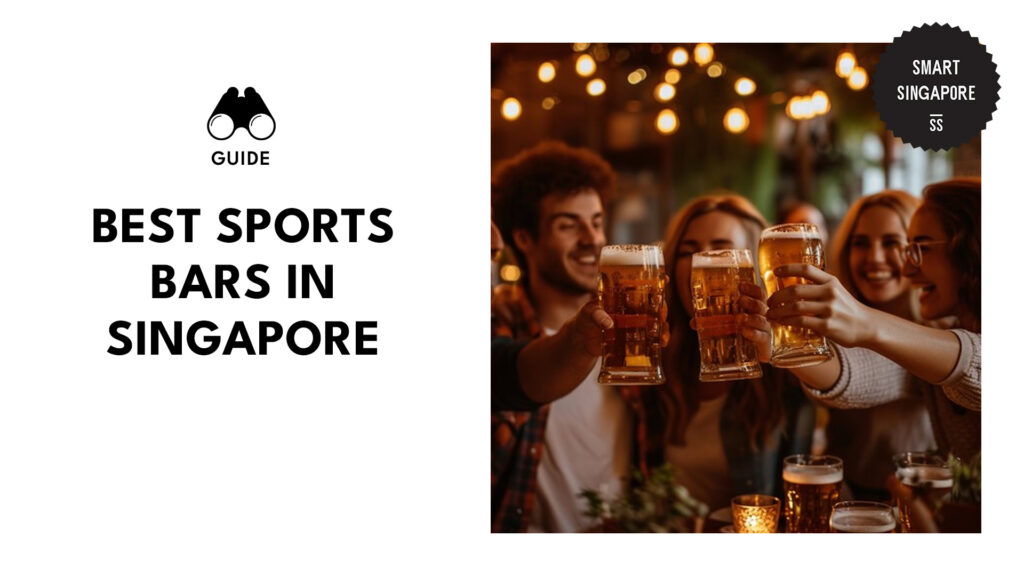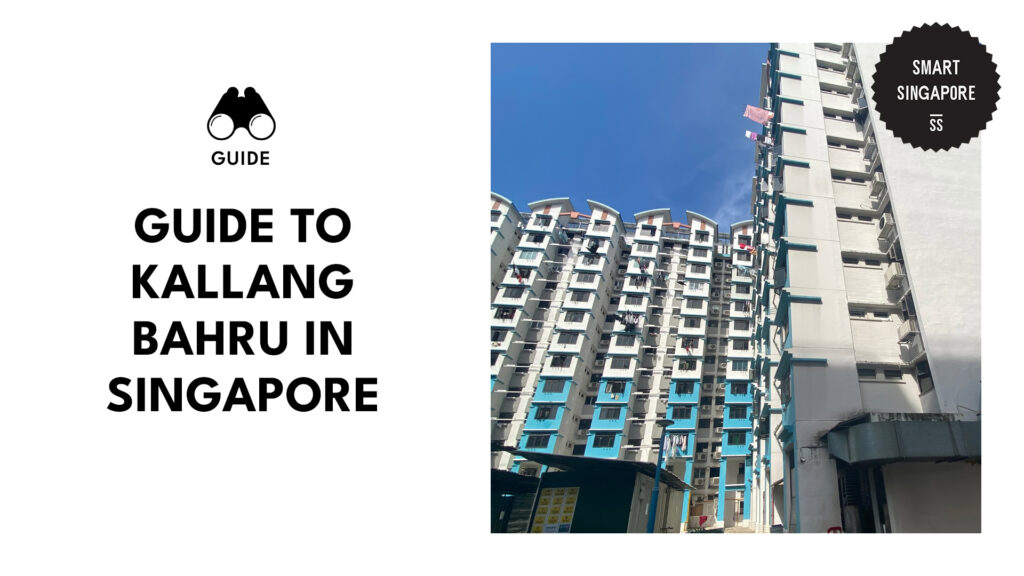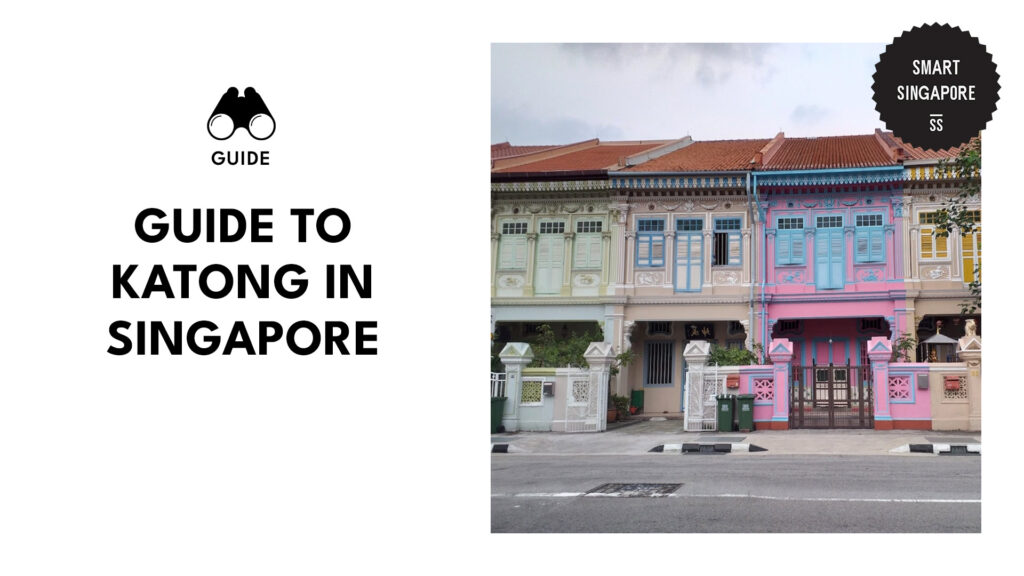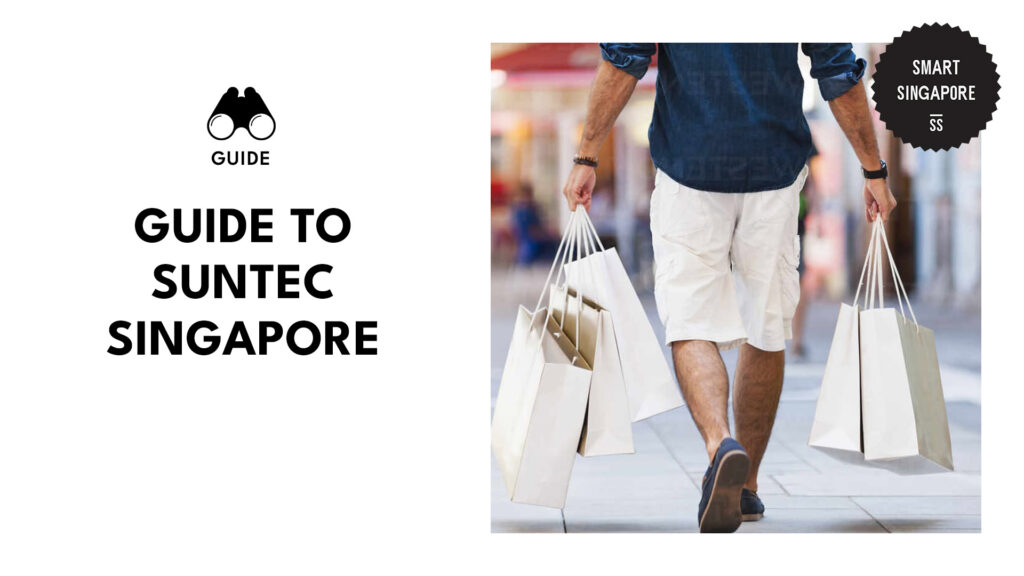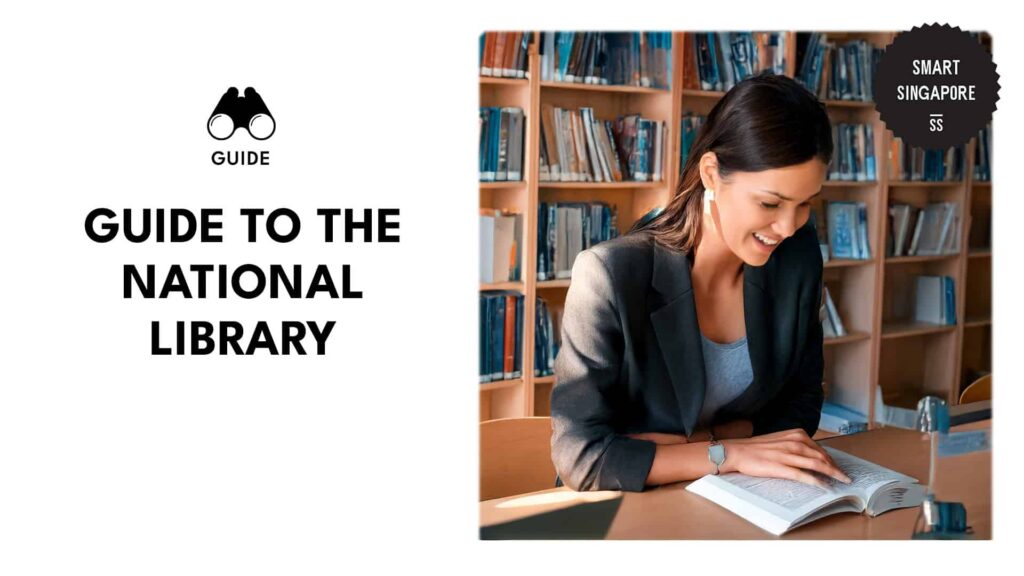Categories > Guides and Tips
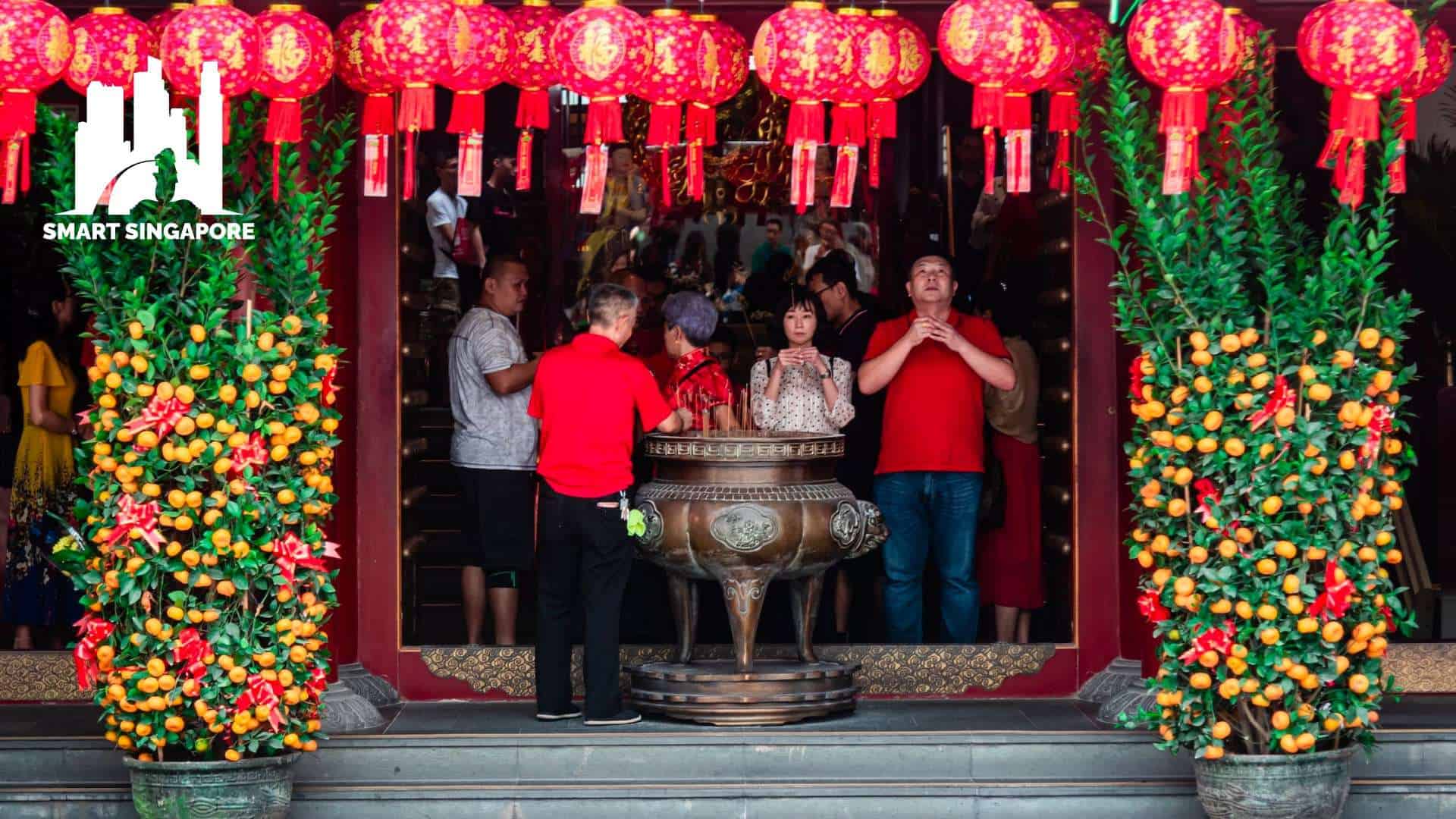
Positive Relationships: How to Deal with People in Singapore
- A Brief Background on Singaporean Culture Values and Attitudes
- Dealing with Conflict: How Do You Deal with a Singaporean?
- Don't lose your cool
- Listen carefully
- Avoid aggressive words
- Find a middle ground
- Ask a third party to help
- Communication: Basic Phrases You Should Learn
- Can Lah
- Liao
- Lah
- Shiok
- Paiseh
- Siao
- Alamak
- Chope
- Respectful Behavior: How do Singaporeans show respect?
- Using a Person's Title and Last Name When Addressing Them
- Taking Shoes off Before Going Indoors
- Using Two Hands to Give or Take Things
- Bowing or Nodding as a Way to Say Hello
- Covering Your Mouth When You Cough or Yawn
- Addressing Older People “Uncle” or “Auntie”
- Taboos: What is considered disrespectful in Singapore?
- Chewing Gum Ban
- Jaywalking
- Littering
- Vandalism
- Public Display of Affection
- Smoking
- Alcohol Drinking Between 10:30 pm and 7:00 am
- Not Flushing the Toilet
- Pointing With Your Feet
- Cutting in Line
- Rude Hand Gestures in Singapore
- Pointing with Your Index Finger
- Thumbs Up
- Calling Someone with Your Index Finger
- Slapping Your Fist on Your Palm
If you’re planning to go to Singapore for a vacation or to start a new job, let me share with you some tips on how to deal with people in Singaporeans.
In this guide, we’ll look at the most important values and beliefs that shape Singaporean society. We’ll also learn how to deal with conflicts with Singaporeans, how to communicate effectively, and what taboos to avoid.
A Brief Background on Singaporean Culture Values and Attitudes

Singapore is a multicultural country made up of different ethnicities, such as Chinese, Malay, and Indian.
Singapore’s social etiquette reflects its cultural and historical influences. When engaging with locals in Singapore, social courtesy is crucial.
The country’s past of colonization, trade, and migration has had a big impact on its values and attitudes. Here are some of the most important ideals and attitudes that Singaporeans have:
- Respect for authority
Singaporeans, who are deeply rooted in Confucian traditions, have high regard for authority figures such as parents, teachers, and government officials.
- Hard work and education
In Singapore, schooling and hard work are highly valued as ways to get ahead and move up the social ladder.
- Collectivism
Singaporeans put a lot of emphasis on keeping relationships and society in order by putting the needs of the group ahead of the needs of the individual.
- Face-saving
Singaporeans put a lot of value on their social status and image, and they will go into a lot of trouble to avoid embarrassing situations in public.
- Harmony and order
Singaporeans care a lot about order and security in society, so they have strict laws and rules. People often use compromise and bargaining to solve conflicts.
- Multiculturalism
Singapore is proud of its many ethnicities and how well they get along. Its multiethnic past is honored through events, food, and the arts.
Dealing with Conflict: How Do You Deal with a Singaporean?

It’s important to keep in mind that Singaporeans try to avoid fights and prefer to solve problems quietly and politely. When dealing with conflicts, it’s important to talk openly and with understanding.
1. Don’t lose your cool
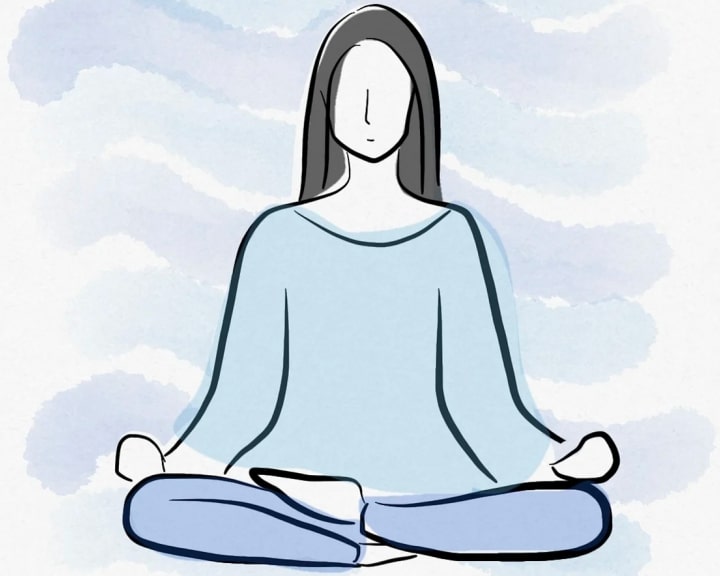
People in Singapore try to stay out of fights and keep the peace. Because of this, it’s important to keep your cool when there’s a fight.
Try to keep your feelings in check and talk in a way that shows care and understanding.
2. Listen carefully

When trying to solve a problem with a Singaporean, it’s important to listen carefully. Try to see things from the other person’s point of view and pay close attention to what they say.
Repeat what they said to show that you heard them and to clear up any confusion.
3. Avoid aggressive words

Singaporeans care about being polite and treating others with respect, so using angry or confrontational language can make things worse.
Instead, use wording that is neutral and doesn’t threaten the other person. Also, don’t accuse or blame the other person.
4. Find a middle ground
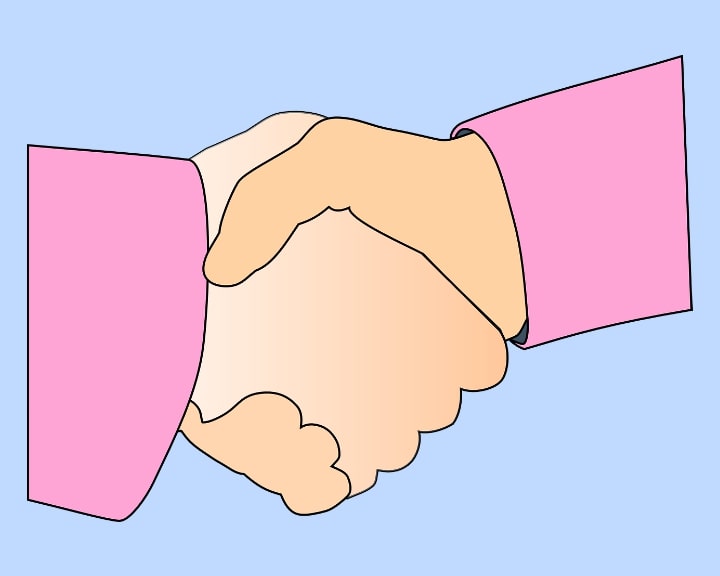
Singaporeans like to find a middle ground and ways to settle. Try to find an answer that works for both sides when you’re in a fight.
5. Ask a third party to help

If the disagreement is especially hard or involves a sensitive topic, you might want to ask for help from a mediator.
Mediators are professionals who have been taught to help people talk things out and find a solution that works for everyone.
Communication: Basic Phrases You Should Learn

Singapore is a multilingual country where many people speak English.
But using a few words in the local dialect can go a long way toward showing respect and getting along with people. This is why I consider this as a part of Singapore’s etiquette for tourists that should be learned.
1. Can Lah
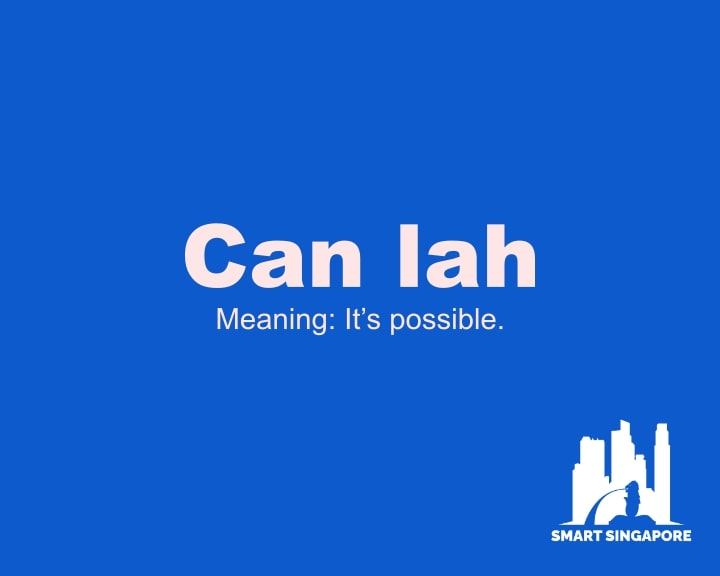
Meaning: It’s possible.
Example usage: “Can lah, we can go watch a movie tomorrow.”
“Can lah” indicates agreement or possibility in a casual manner. “Can” means “yes,” while “lah” shows informality.
2. Liao
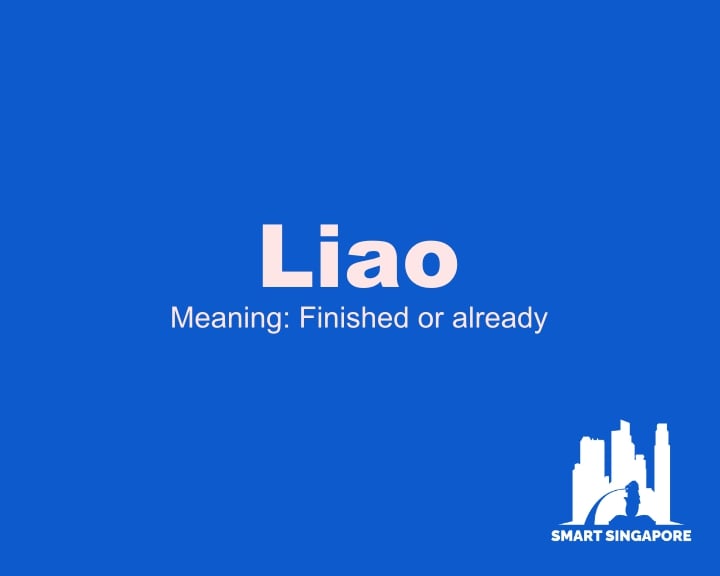
Meaning: Finished or already
Example usage: “I just completed my work, ise liao.”
Singlish uses “liao” frequently. It indicates completeness.
Singlish terms like “liao” provide local flavor but may be better in informal circumstances.
3. Lah
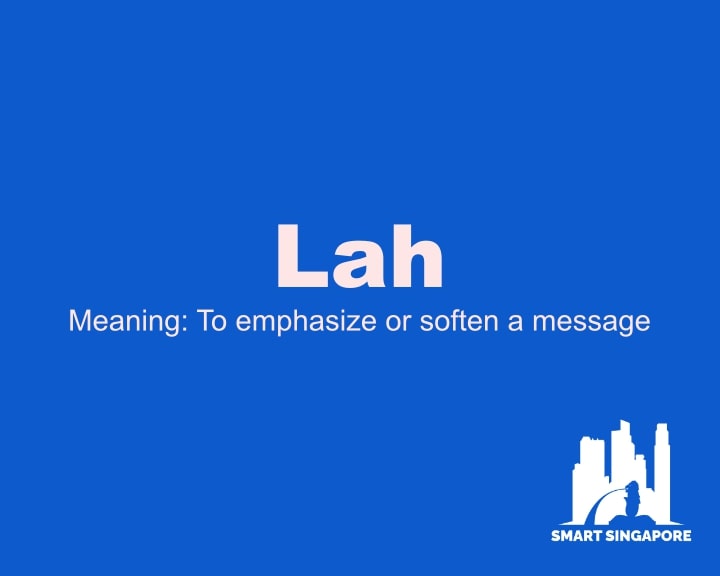
Meaning: To emphasize or soften a message
Example usage: “Eh, let’s go eat some chicken rice lah!”
“Lah” is a common Singlish word. It ends a sentence to highlight or soften the message.
“Eh, let’s go eat some chicken rice lah!” uses “lah” to lend a friendly, informal tone.
4. Shiok
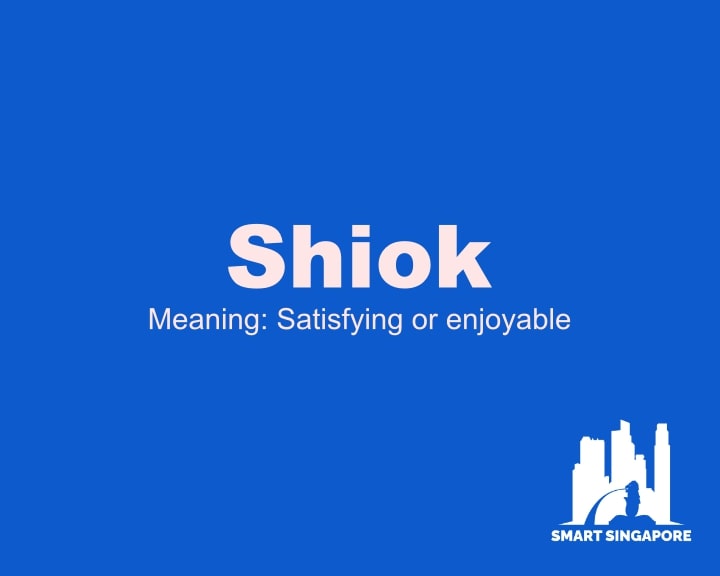
Meaning: Satisfying or enjoyable
Example usage: “This ice cream is so shiok. It’s a must-try!”
“Shiok” is a common Singlish word for fulfilling, enjoyable, or pleasurable. It expresses joy or pleasure over something.
In the sentence “This ice cream is so shiok. It’s a must-try,” “shiok” emphasizes the ice cream’s taste and encourages the listener to eat it.
“Shiok” is typically used to describe food, but it can also describe other pleasant activities like a swim or a massage.
5. Paiseh
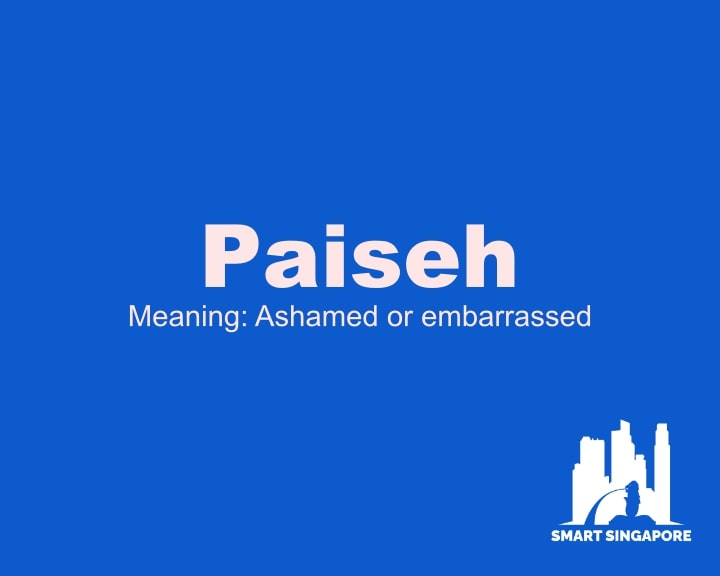
Meaning: Ashamed or embarrassed
Example usage: “It’s okay lah, don’t paiseh. We’ll make it just in time.”
The Singlish word “paiseh” is derived from the Chinese dialect, Hokkien. It expresses shame, embarrassment, or awkwardness.
The word expresses regret for a mistake or an inconvenience. In the example above, the speaker reassures someone who’s ashamed or remorseful about being late.
By stating “Don’t paiseh,” the speaker is encouraging the person not to feel humiliated or guilty and assuring them that everything will be fine.
6. Siao
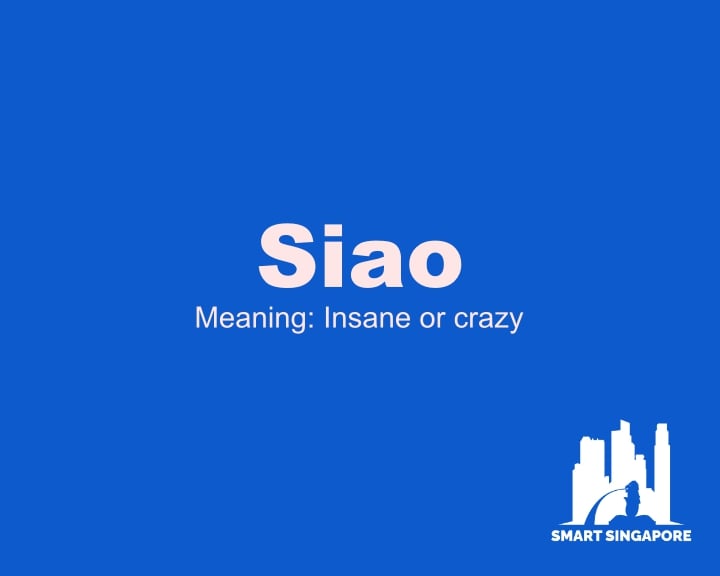
Meaning: Insane or crazy
Example usage: “What? You siao ah? Starting a business is very risky, and you have a steady job now.”
Singaporeans use “siao” to mean mad or crazy. It’s commonly used in jest to show surprise, disbelief, or extreme circumstances.
In the example above, the speaker is surprised and disbelieving that the other individual started a business despite the hazards. “Siao” implies that the decision is illogical.
7. Alamak
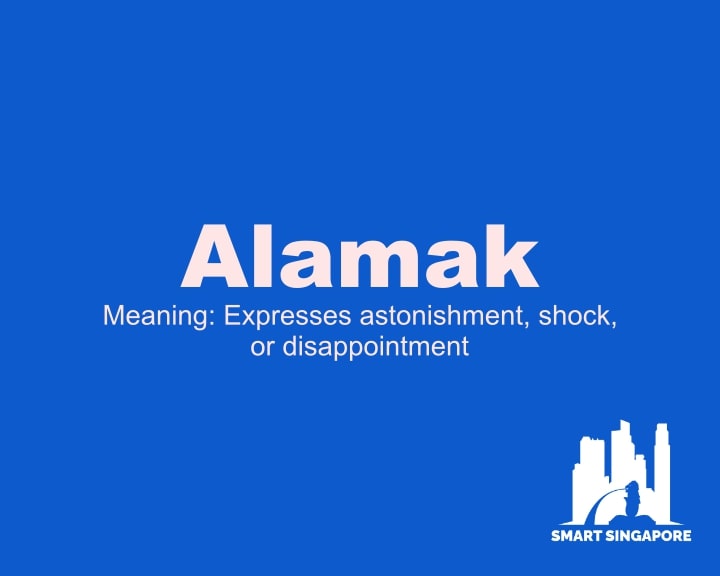
Meaning: Expresses astonishment, shock, or disappointment
Example usage: “Alamak! That’s not good. Do you have time to change or clean it up?”
In Singapore and Malaysia, “alamak” expresses surprise, shock, or disappointment. It’s used when anything bad happens.
In the example above, “alamak” means the speaker is surprised and disappointed. Singaporeans use “alamak” to express a variety of emotions after unexpected or tragic situations.
8. Chope

Meaning: Saving a seat
Example usage: “Let’s chope a table. At lunchtime, there are a lot of people there.”
Singaporeans use “chope” to reserve a seat or table. It’s utilized at food courts and hawker centers where sitting is scarce during busy hours.
“Chope” comes from the Malay word “cap,” meaning to brand or claim. In the example above, the speaker suggests reserving a table before ordering meals since lunchtime is hectic.
“Choping” a seat involves placing personal objects on the table to indicate that it’s occupied. To avoid misunderstandings or taking someone else’s reserved seat, be mindful of this Singaporean cultural practice.
Respectful Behavior: How do Singaporeans show respect?
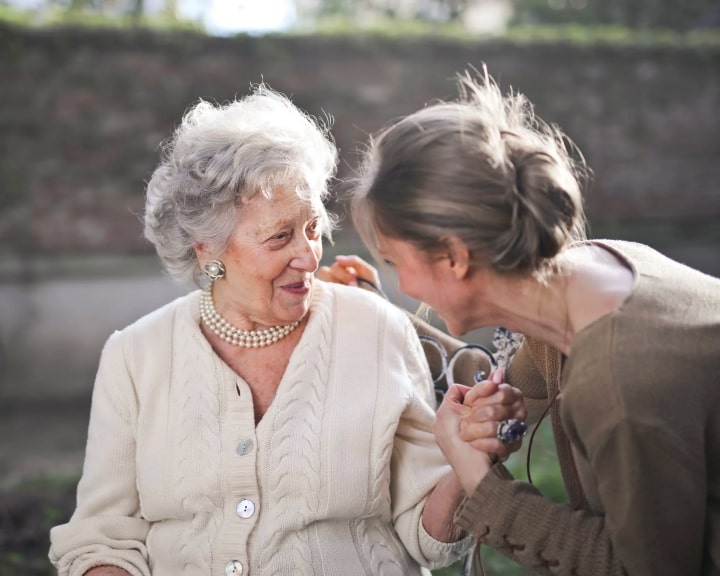
1. Using a Person’s Title and Last Name When Addressing Them

Event/Place:
- Business meetings
- Formal events
Reason: To show that you respect their authority and position
In formal meetings and events in Singapore, people are addressed by their titles and last names. The culture values hierarchy and respect for authority.
Addressing someone with their title, such as “Mr.,” “Ms.,” or “Dr.,” followed by their last name expresses respect for their position and authority.
2. Taking Shoes off Before Going Indoors
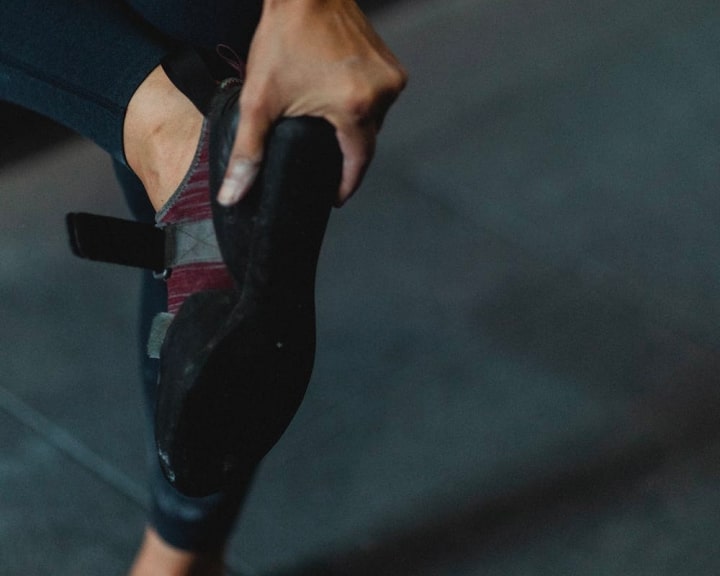
Event/Place:
- Private homes
- Places of worship
Reason: To express care about the place and wanting to keep it clean
Before entering homes and places of worship, you must remove your shoes. The culture values cleanliness and respect for personal and sacred spaces.
Removing shoes shows the homeowners or religious institutions that you respect them. Taking off shoes prevents dirt, dust, and external contaminants from entering.
3. Using Two Hands to Give or Take Things

Event/Place: Social or business interactions
Reason: To show that you respect the person and you’re paying attention
In social and business situations, Singaporeans often give and receive with both hands. Using two hands shows that you respect the person and appreciate the item you’re receiving.
4. Bowing or Nodding as a Way to Say Hello
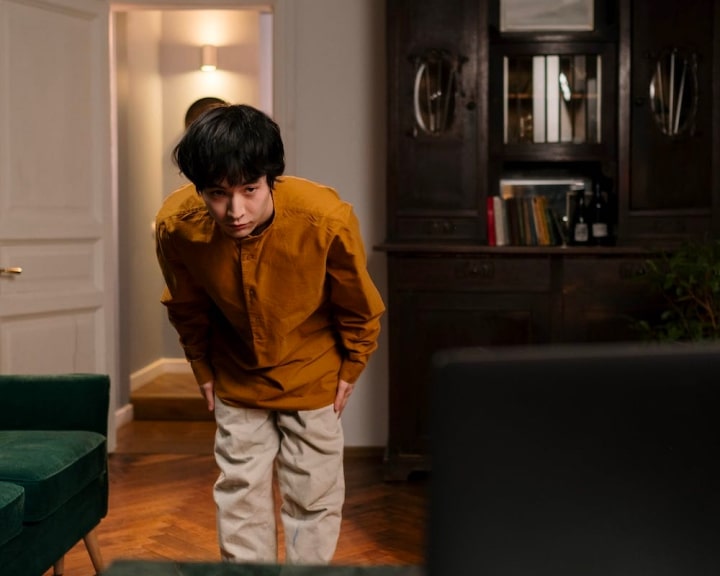
Event/Place: When meeting someone for the first time in a formal or work setting
Reason: To show respect to the other person and to let them know you’re aware of their presence
In Singapore, bowing or nodding are traditional ways to say hello. This traditional practice shows that people are important and respected.
How deeply you bow or nod to a coworker or a new acquaintance depends on the situation and how serious you are being.
5. Covering Your Mouth When You Cough or Yawn
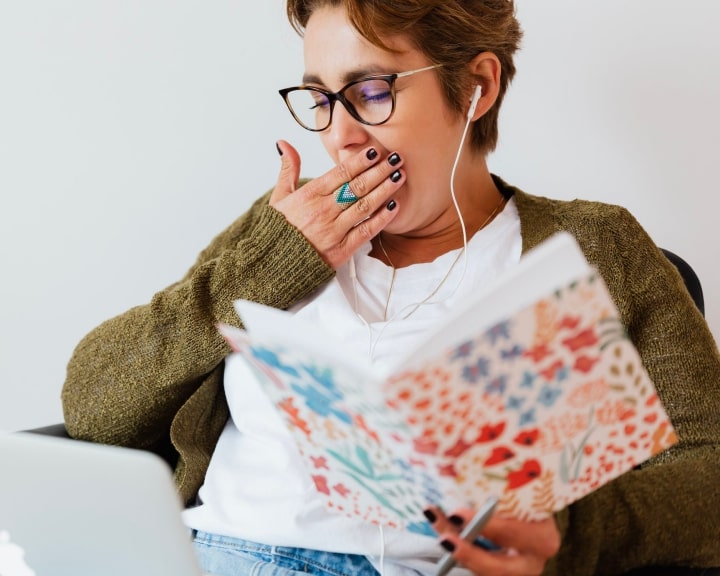
Event/Place: Public or social settings
Reason: To show care about the comfort and health of other people
People should try to be discreet when coughing or yawning in Singapore, especially in public. This practice shows that you care about other people.
When you cover your mouth, germs and disease are less likely to spread. This social norm shows that Singaporeans care about the hygiene and health of their communities.
I suggest that you wear a face mask in case you need to go out when you have a cough. You should also try to cover your mouth when yawning.
6. Addressing Older People “Uncle” or “Auntie”
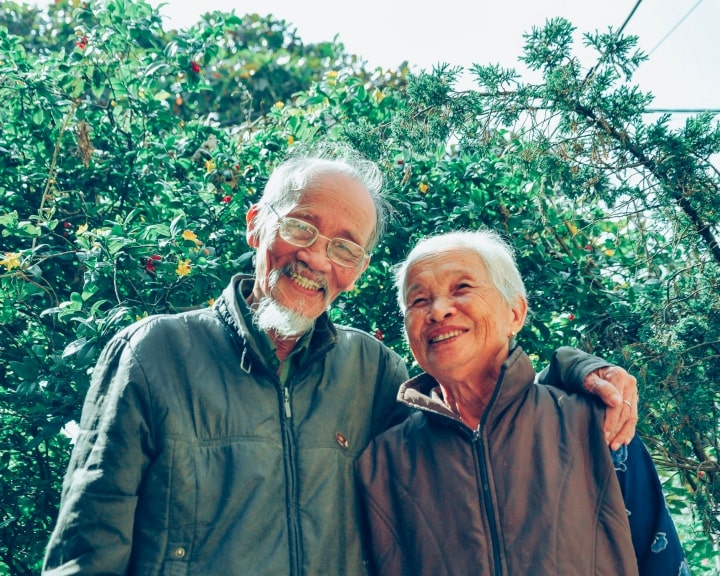
Event/Place: Anywhere in public
Reason: To show respect to older people, especially if you don’t know them personally
Singaporeans call older people “Uncle” or “Auntie” out of respect, even if they don’t know them. This can be done anywhere such as markets, shops, and public transportation.
Taboos: What is considered disrespectful in Singapore?
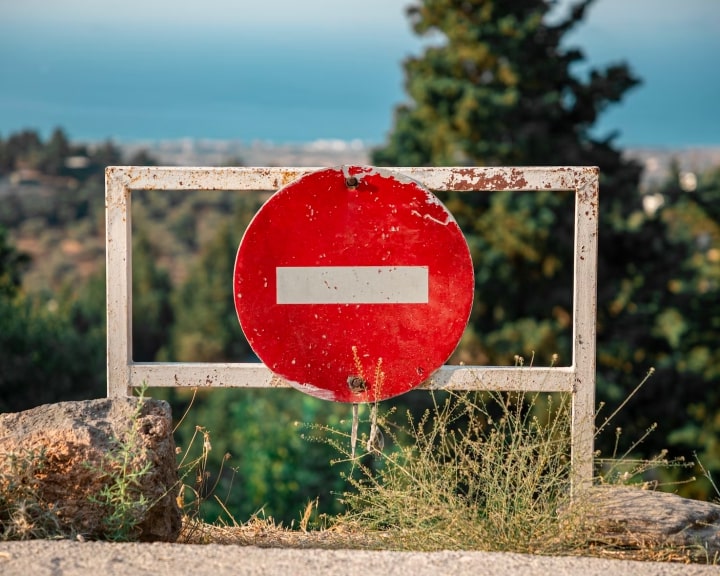
1. Chewing Gum Ban

Consequence:
Chewing gum is banned and punishable by fine and jail time. Selling chewing gum in Singapore can lead to fines of up to $100,000 and up to two years in jail.
Possession of chewing gum, on the other hand, can lead to fines of $500 to $1,000 for the first offense and $2,000 for the second and following offenses.
The reason it’s not allowed:
Singapore has banned gum to keep the city clean and keep its infrastructure in good shape. The rule keeps people from dropping gum on the ground and making public areas less clean.
It also keeps gum from damaging buildings and public transportation. By banning people from acquiring and chewing gum, cleaning public areas becomes faster and more efficient.
2. Jaywalking
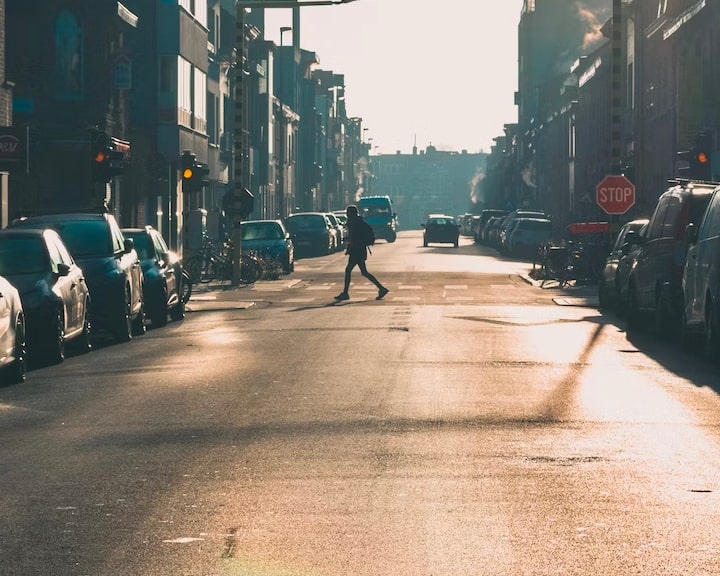
Consequence:
If you are found jaywalking, you might get a fine from law enforcers. Jaywalkers can be fined $50 for their first infraction, while repeat offenders face a $1,000 fine and three months in prison.
The reason it’s not allowed:
Jaywalking is against the law because it puts people and cars in danger. Accidents and traffic jams are more likely to happen at unmarked street crossings.
The law against jaywalking is meant to get people to cross the street at marked crossings, which are built and equipped for safe and quick crossings.
3. Littering
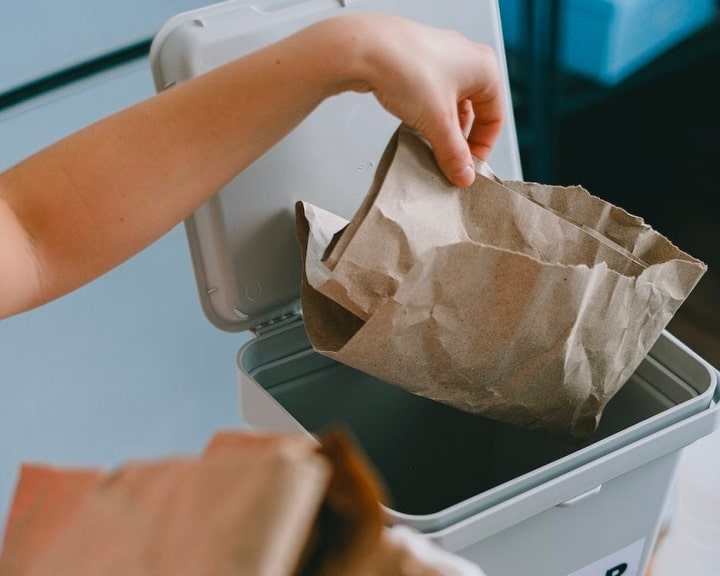
Consequence:
Throwing away small objects like candy wrappers or cigarette butts will result in a $300 fine.
You’ll be called to appear in court for bigger things like drink cans or bottles. You can be forced to clean a certain area and wear a neon green vest as punishment.
The reason it’s not allowed:
Singapore has a law against littering because we want to keep our image as a clean city. We’re strongly against littering, and strict rules are in place to make sure that people don’t do it.
When you throw trash on the ground, you not only make our world less clean, but you also put people’s health and safety at risk.
4. Vandalism
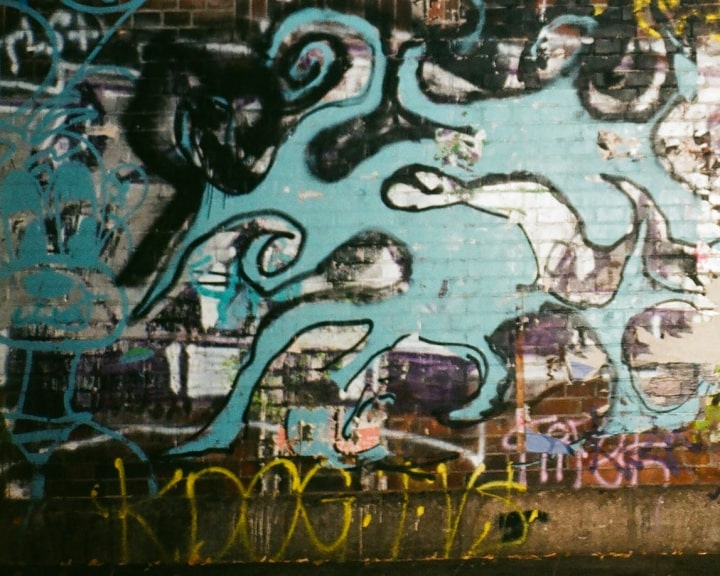
Consequence:
The punishments for vandalism can be very harsh, including fines of up to $2,000, jail time of up to 3 years, and 3 to 8 hits with the cane.
The reason it’s not allowed:
Vandalism is illegal in Singapore because it hurts public places, private property, and the look of the city. Singapore cares about keeping things clean and in order.
5. Public Display of Affection

Consequence:
Public displays of affection (PDA) are not illegal in Singapore, but excessive or inappropriate PDA in specific settings may cause social criticism.
The reason it’s frowned upon:
Singapore’s cultural and social traditions value modesty and privacy. This is why many Singaporeans discourage public displays of affection.
Respect other people’s comfort, especially in settings that are tight or crowded.
6. Smoking

Consequence:
If you get caught smoking in a place where it’s not allowed, you might have to pay a fine of up to $500. If you don’t have the choice to pay a fine and you end up in court, you may have to pay a fine of up to $1,000.
The reason it’s not allowed:
The smoking ban in Singapore is important because it protects our health. It means that people like me who don’t smoke don’t have to think about breathing in second-hand smoke coming from smokers, which can be dangerous.
7. Alcohol Drinking Between 10:30 pm and 7:00 am
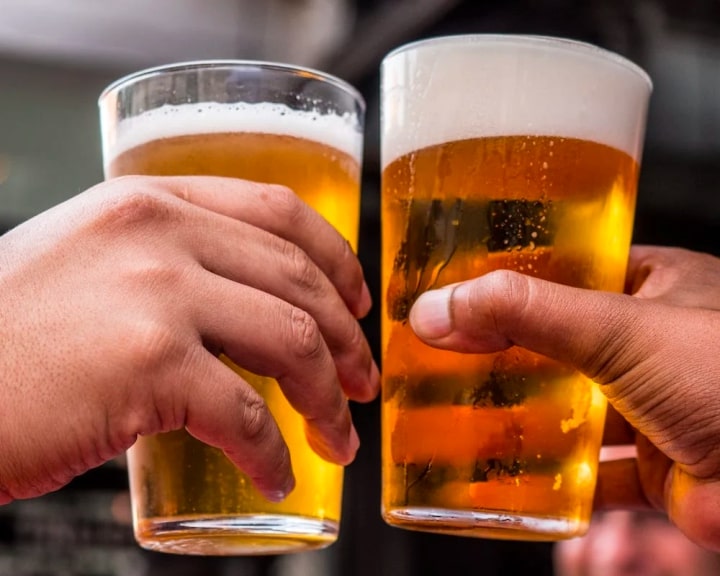
Consequence:
If you are found drinking alcohol in public between 10:30 pm and 7:00 am, you could face some major consequences. It’s against the law, and if you do it, you could have to pay a fine of up to $1,000.
The reason it’s not allowed:
This law helps keep everyone safe and the city peaceful. The rule is there to keep people from being bothered and to make sure that their evenings go smoothly.
Still, there’s a bright side! Since the rule doesn’t apply to drinking in private places, I can still have a drink at home or at a friend’s place after 10:30 pm. Cheers!
8. Not Flushing the Toilet
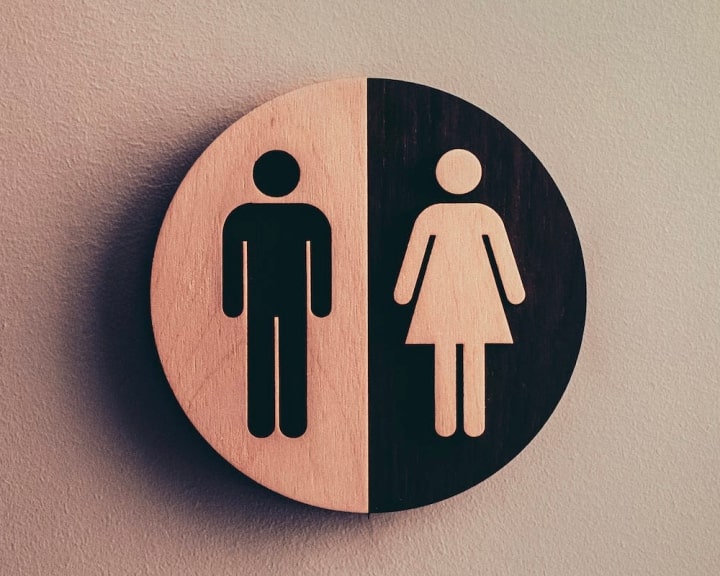
Consequence:
People who don’t flush the toilet may face social disapproval from other people who use the toilet.
You also might have to pay a fine of more than $150 or even go to jail if you don’t flush public toilets after use.
The reason it’s frowned upon:
These strict rules about toilet flushing are for a good reason. Singapore is known for being very clean, and we want everyone to clean up after themselves.
By flushing, people keep the bathroom clean. It gets rid of smells and gets the toilet ready to be used.
9. Pointing With Your Feet

Consequence:
When you point with your feet, it can make other people feel angry, annoyed, or insulted, resulting in damaged relationships and may also lead to confusion.
The reason it’s frowned upon:
Singaporeans think of feet as dirty and lowly. When you point with your feet, you are showing disrespect for the person or thing you are pointing at.
Avoiding foot-pointing shows cultural awareness and politeness.
10. Cutting in Line
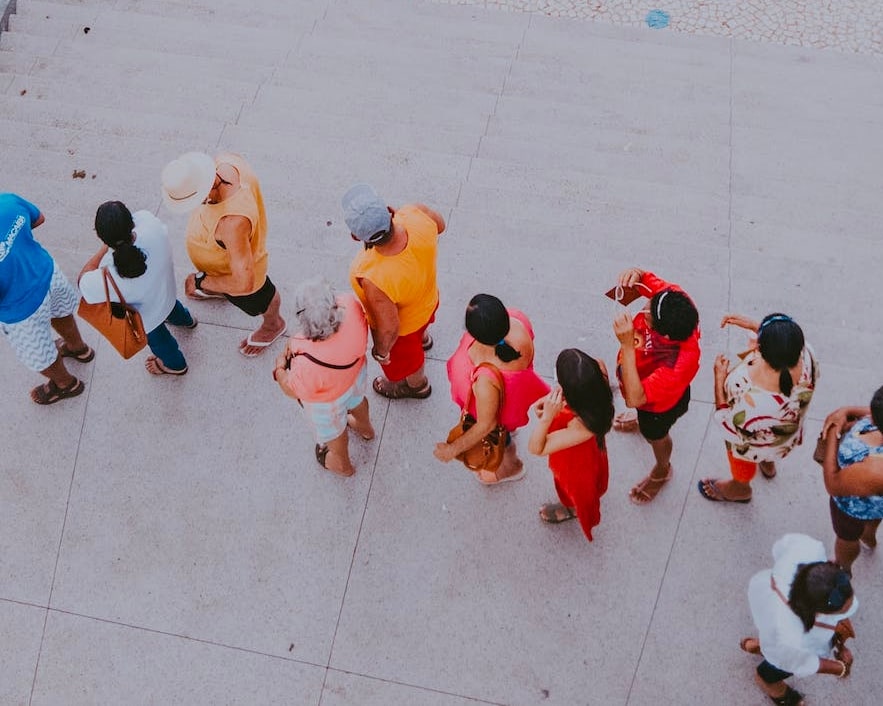
Consequences:
There’s no legal punishment for cutting in line, but at worst, it can lead to confrontation with others who are waiting with you.
The reason it’s frowned upon:
Singaporeans line up in an orderly way to show fairness, respect, and social unity. Cutting in line shows disrespect for those who are waiting calmly.
Rude Hand Gestures in Singapore
1. Pointing with Your Index Finger

Why it’s rude:
It’s rude to point with the index finger because it’s seen as aggressive and confrontational. It’s often used to tell someone off or correct them.
When you point straight at someone, it can seem rude and make them feel uncomfortable or embarrassed.
What to do instead:
Use an open hand or a nod to point. Open hands are more welcoming and less likely to start a fight.
It shows that you’re ready to lead without power or offense. You can also show direction or attention by nodding.
These actions show respect, kindness, and willingness to work together.
2. Thumbs Up

Why it’s rude: The thumbs-up sign looks like a phallic symbol and can be insulting.
What to do instead: Nodding or smiling can send a positive message without making anyone feel bad.
3. Calling Someone with Your Index Finger

Why it’s rude: It could be seen as a demand instead of an invitation.
What to do instead: Use your open hand instead of your index finger to ask someone to come closer. This kind gesture is welcoming.
5. Slapping Your Fist on Your Palm

Why it’s rude:
In Singapore, slapping your hand with your fist looks like a threat. Singaporeans like peace and try to avoid arguments, so these kinds of bold moves are looked down upon.
